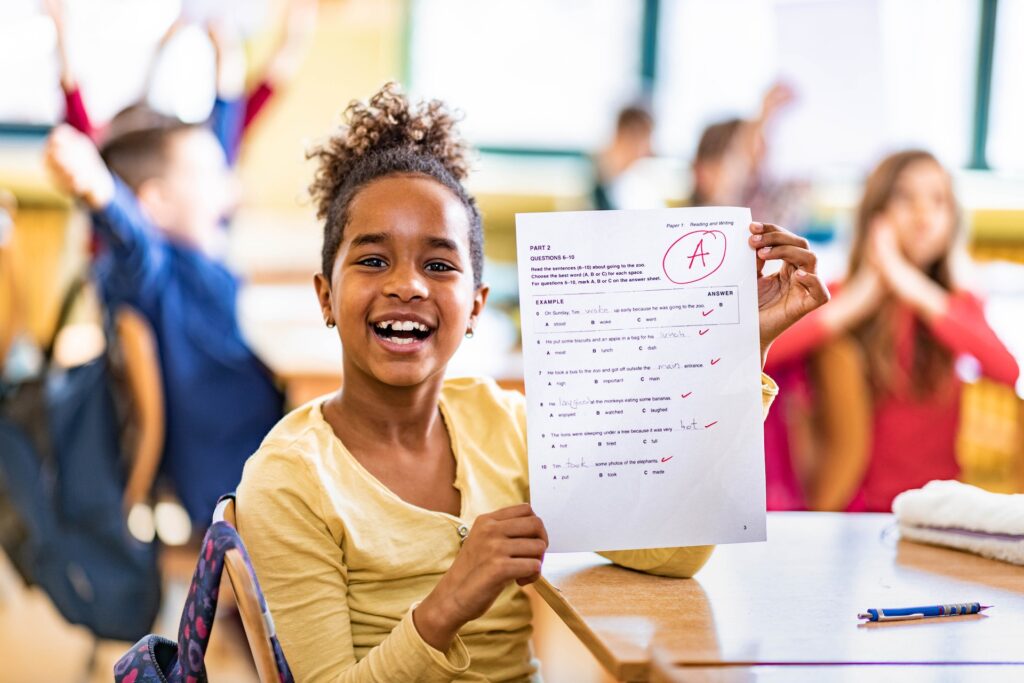It’s spooky season, so something else scary is approaching: report cards! Regardless of when report cards come home, parents and students can banish bad grades scaries by discussing report cards together.
Report cards are a key part of the school year, providing vital feedback about school progress. But they can also be stressful: Students may worry about the repercussions of poor grades, and parents may have concerns about the long-term impact of grades that are not where they should be.
A report card talk can lessen this stress by identifying concerns, reflecting on struggles, and setting goals together.
10 Tips For a Better Report Card Talk
- Be intentional: Ensure your child knows you want to review and discuss their report together.
- Clear your schedule: don’t rush, and reduce distractions so you can both focus on reviewing the report card together.
- Start with the positives. Highlight increased marks or emphasize a nice comment the teacher made.
- Involve your child. Ask what they learned in each subject area— math, English, science, etc.
- Review grades against any tests or assignments. Marks on projects should align with the overall grade.
- Recognize that school can be challenging. Effort doesn’t always align with achievement, and sometimes, a low grade indicates where attention needs to be focused.
- Listen to your child. The children who struggle the most are usually the most vocal. Ask them if they feel satisfied with their grade. If they aren’t, discuss what could be done to improve their mark.
- Discuss other sections of the report card, such as comments, absences, attitudes, etc. and give your child an opportunity to explain each indicator.
- Be optimistic: there is still plenty of time to pull up low grades.
- Create a plan to address low grades together. Use the CAM system to set some goals for the next report card.
Get Great Grades With GradePower Learning
Help your child develop stronger learning skills that lead to great grades with a customized program at GradePower Learning.
Already a GradePower Learning student? Ask us about scheduling a report card consultation to review your child’s report card.
Read more: Everything you need to know about report cards.
Edited. This post was originally published in 2017.







